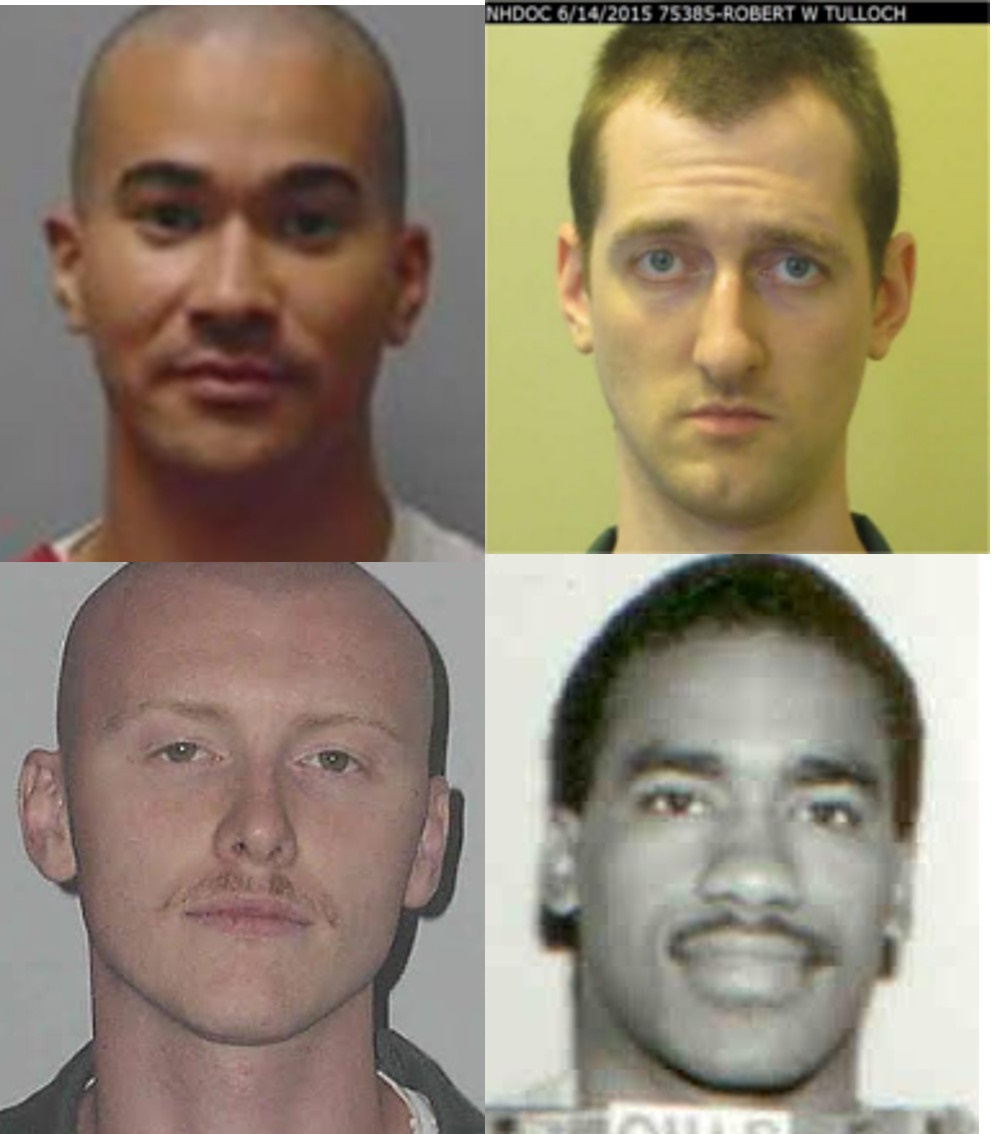A re-sentencing hearing for one of four killers who were imprisoned as teens for life without parole decades ago, two of them among the state’s most notorious murderers, has been scheduled for the fall.
Eduardo Lopez Jr., who shot Robbie Goyette to death in 1991 in Nashua, will be re-sentenced Sept. 12. Lopez and the other three men were 17 when sentenced to life without parole for unrelated murders.
Public Defender Paul Borchardt said Lopez’ family and people who knew him may be called to testify.
“There might be psychiatrists or psychologists who evaluate Eddie and tell the court about his mental state, both now and back in 1991,” Borchardt said.
Lopez’s prison disciplinary record may also be presented, Borchardt said. “I don’t know if the Goyette family would want to make a statement, but they would have a right to do so.”
Hearings for Robert Tulloch, convicted in the notorious 2001 stabbing deaths of Dartmouth College professors Half and Susanne Zantop, and Robert Dingman, who with his brother killed their parents Vance and Eve Dingman in 1996, have yet to be scheduled.
A hearing for Michael Soto, who was convicted of the 2007 Manchester slaying of Aaron Kar has also not been scheduled.
Dingman’s brother, Jeffrey Dingman, who was 14 at the time of the murders, testified at Robert’s trial how he taunted their parents in their final moments. Jeffrey said he shot his mother a couple of times, then Robert told her to “Die bitch” before shooting her in the head as she tried to crawl away.
The Dingman brothers partied that weekend after wrapping their parents’ bodies in garbage bags, according to news reports at the time. Jeffrey Dingman pleaded guilty to a lesser charge and was paroled two years ago.
The Zantop murders also generated national outrage as details emerged of how high school friends Robert Tulloch and James Parker planned to rob the couple to finance an adventure to Australia.
They gained entry to the Zantops’ Etna home by saying they were conducting a school survey then stabbed them to death with a military-style knife purchased on the Internet. Parker pleaded guilty to lesser charges that will allow him to seek parole down the road.
The state is required to re-sentence the four men because in Miller v. Alabama in 2012, the U.S. Supreme Court deemed automatic life without parole for juveniles to be cruel and unusual punishment.
The court’s Jan. 25 ruling required it be applied retroactively as well, which means re-sentencing the four men in New Hampshire and as many as 2,300 inmates nationwide.
Three days have been set aside for Lopez’s hearing in Hillsborough County Superior Court South in Nashua. It is expected to be the first of its kind in New Hampshire since the Jan. 25 court ruling.
The U.S. Supreme Court left it to the states to decide how to handle the re-sentencing hearings, but said a sentencing court is supposed to consider a number of mitigating factors.
“There is no one fact that must be proven to take life without parole off the table; instead it is like a sentencing hearing where one of the possible sentences is life without parole,” Borchardt said.
A judge could still impose life without parole or impose a lesser sentence as long as the judge considers other factors such as immaturity, impetuosity and failure to appreciate risks and consequences.
When the four convicted killers are re-sentenced, the judge will likely examine their childhoods, maturity and prison rehabilitation, according to Joshua Rovner, state advocacy associate at The Sentencing Project, an advocacy organization in Washington, D.C.
“Individuals under 18 don’t have the maturity, are not capable of understanding consequences to the extent that adults are,” Rovner said.
The questions that are going to come up will likely include their individual involvement in the crime, whether they were coerced, whether they were an accessory or largely responsible for the crime, Rovner said.
“The other questions will be about their maturity, how well they were able to understand what it was they were doing,” Rovner said. “Do we know about their home lives? Were they otherwise abused children, which is often the case.”
Other states that have addressed re-sentencing have looked at how the inmate has matured.
“What has the person done while incarcerated. Has he gotten a GED? Has he mentored young people? Has he put together an exemplary record while incarcerated?” Rovner said.
“There is no shortage of examples of young men who have done those things,” Rovner said. “I think it’s appropriate to ask whether these young men are still a threat to public safety.”
Sixteen states have banned mandatory life without parole for juveniles, some before the 2012 U.S. Supreme Court ruling and others since, Rovner said.
In a separate court action, Eduardo Lopez Jr. is also seeking a new trial because a former Nashua police detective had testified against him decades ago without disclosing prior discipline for lying.
Hillsborough County Superior Court Judge Jacalyn Colburn ruled against Lopez’s bid for a new trial saying that then-detective John Seusing’s testimony was “inconsequential in establishing Mr. Lopez’s guilt.”
Lopez recently filed a notice of appeal to the state Supreme Court in that case.





